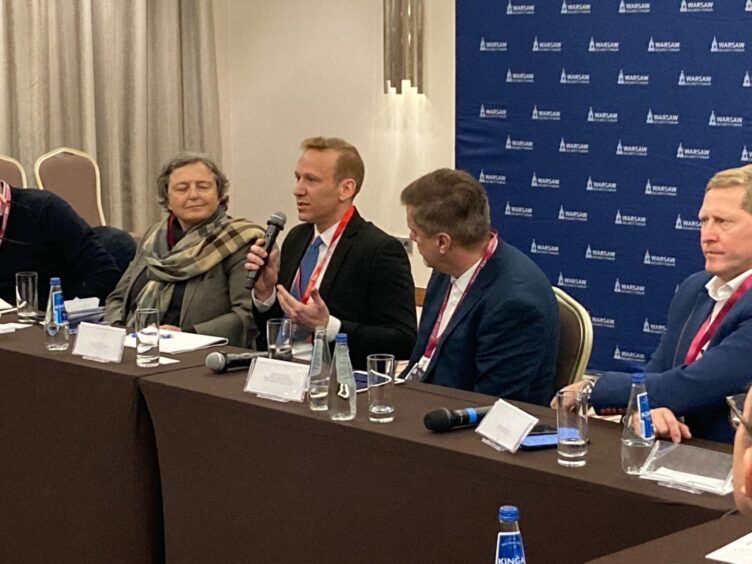
How do we keep Europe warm this winter? What is the future of energy for Europe? Has decarbonization slipped off the to-do list?
These were the most frequently discussed topics at the Warsaw Security Forum, the increasingly important sister body of the Munich Security Conference. More than 1,500 delegates attended the two-day summit featuring top politicians, energy and defence industry experts from Europe and beyond.
It’s the first time that business had been invited to this event, which shows how much energy policy-making and innovative business are blending. Events over the last year, have made it all too clear the two must work closely together if we are to successfully navigate economic headwinds and geopolitical turmoil. The unbreakable link between security and energy is clearer than ever. Energy has become the dominant issue driving international relations.
Strengthening energy security, strengthens our security. Energy policy is security policy.
They were also here to discuss security in Eastern and Central Europe, and the event felt incredibly poignant, especially as Ukraine’s first lady, Olena Zelenska, took to the stage to accept the 2022 Knight of Freedom Award on behalf of the people of Ukraine. It was very much in the consciousness of everyone that we are just a stone’s throw away from an unthinkable war raging in Europe that has turned the energy industry on its head.
In her panel session, Riina Sikkut, the Minister for Economic Affairs and Infrastructure for Estonia said that the war on energy started well before the first tank rolled into Ukraine. Putin has been in the driving seat when it comes to gas supply in Europe, and today in Warsaw there is a collective agreement that this needs to change.
What’s also clear is, that when it comes to the energy landscape in Europe, there is no longer a ‘business as usual’. There is no playbook for the turmoil we’ve experienced over the last few years. We are in unchartered territory and that demands new ways of working, new types of thinking and above all else… unity. In these unprecedented times, we must intensify the dialogue on energy to tackle important issues together. We don’t have all the answers but it’s essential that throughout Europe we must work better together.
During one of the panel discussions, I spoke about challenges in the supply chain, which for private business is a critical topic. We are experiencing a supply-chain crunch brought about by delays, limited raw material availability and price increases. Working as a united Europe can help identify, fund and certify new supply chains. This is just one example of how collaboration and unity across Europe could ease the energy crisis we are seeing unfold.
In addition to the supply-chain crunch, many of these countries represented here are impacted heavily by EU sanctions. They are vulnerable to rising gas prices and heavily reliant on fossil fuels in their energy-mix. In Poland, around 70 per cent of energy generation relies on fossil fuels, mostly coal. Future plans to use gas as a lower-carbon, reliable bridging fuel look challenging, at least in the short-term with prices skyrocketing and availability of supply in question.
What’s also clear though is a determination that our long-term energy security must be achieved by reaching net zero. George Sergiu Niculescu, Romania’s Secretary of State for Energy, talked about using today’s energy crisis as a catalyst to actually accelerate the green transition. He said that green investment would form the backbone of his country’s economic growth plans; an optimism I share as we are investing heavily in our own Siemens Energy Centre in Bucharest, Romania.
Despite these differences in maturity and speed when it comes to the energy transition, everyone I’ve spoken to has one united aim; to deliver energy security and implement climate policy. There is a strong view that these can be two sides of the same coin. There is an even stronger view that working together is the only way to deliver.
Our strength lies in our democracy and our ability to work together, that is how we keep Europe warm this winter and it is how we deliver security and climate strategy together.
Recommended for you
